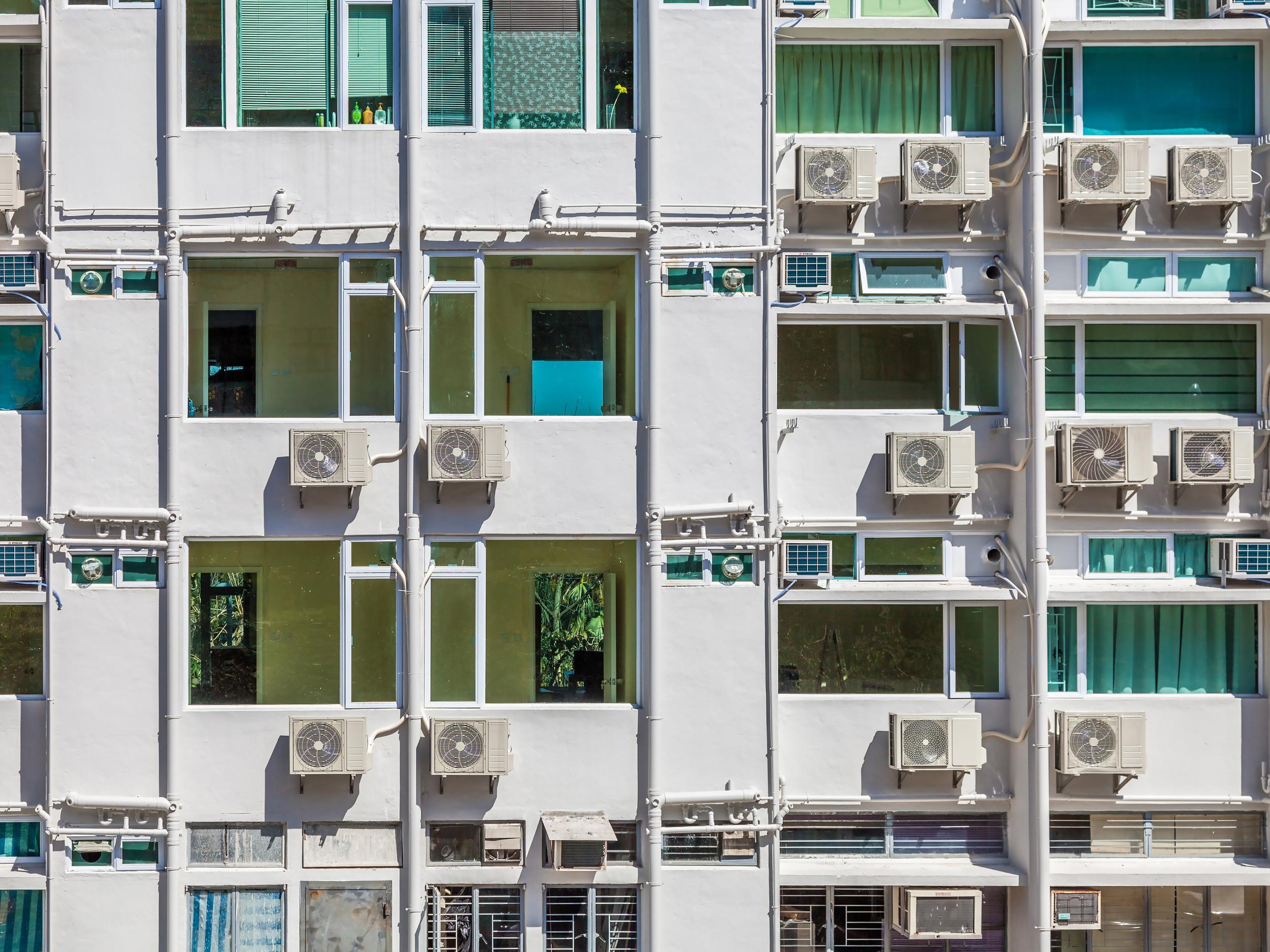20 pledges for 2020: Air conditioning is great for dealing with the weather but awful for the environment

Your support helps us to tell the story
From reproductive rights to climate change to Big Tech, The Independent is on the ground when the story is developing. Whether it's investigating the financials of Elon Musk's pro-Trump PAC or producing our latest documentary, 'The A Word', which shines a light on the American women fighting for reproductive rights, we know how important it is to parse out the facts from the messaging.
At such a critical moment in US history, we need reporters on the ground. Your donation allows us to keep sending journalists to speak to both sides of the story.
The Independent is trusted by Americans across the entire political spectrum. And unlike many other quality news outlets, we choose not to lock Americans out of our reporting and analysis with paywalls. We believe quality journalism should be available to everyone, paid for by those who can afford it.
Your support makes all the difference.This summer's hot weather has been beautiful, of course – but also serves as a horrifying reminder that such freak, warm weather is getting more and more normal.
If you need another reminder of this, it's how many of our buildings are not built for such weather: you're lucky if they're warm enough, but truly blessed if you have somewhere to live that's cool enough.
British houses were built for a climate that is rapidly disappearing from existence.
In the face of this, I've been poring through various appliances websites looking for air conditioning, in an attempt to make our house more ready to take on the hot weather.
But as soon as I started looking I was hit by a horrendous guilt: air conditioning is good for the weather, but terrible for the climate.
The environmental impact of this technology does not yet appear to be enough of a concern to be used as a selling point – or perhaps it is so dire that mentioning it is best avoided.
Either way, it's difficult to work out how much energy this kit actually uses: picking through websites, you'll be treated to sentences and sentences on the precise square footage that the unit will cool, how it can be controlled in a variety of different ways, and so on.
It takes some reading to realise that they can cost a substantial amount to run, at a cost to both the environment and your wallet.
There's something horrifyingly neat about researching the environmental impact of air conditioning: by making you cool, it helps heat the world, and makes you need cooling even more. It's like quicksand, your instinctual response to fight against it actually dragging you in further. The paradox is so neat that it's suffocating.
So we have decided to take a more traditional, low-tech response. (For some reason, lots of people who shares tips on how to do this say they heard them from an old friend in France or Italy, which gives them a wonderful pastoral air, like following them should make your house smell of lavender and freshly baked bread.)
We mostly leave the windows open in our bedroom, which supposedly traps the cool evening air in for longer; we open them when we go to bed, which freshens up the room (as well as allowing in all kinds of bite-y wildlife).
We leave the curtains in there shut through the day, too, keeping the sun out so that it's cooler when you go to bed.
We do have more traditional fans, rather than AC units, but try to use them sparingly, turning them down low when we're in the room and turning them off entirely when we're not.
These aren't home improvements, of course; in one important sense this is not keeping to my pledge to do DIY to make my house more green.
Instead, it is becoming clear to me that often the best things you can do to your make house more sustainable is to not always leap to the technological or radical solution – but rather to learn to make do.



Join our commenting forum
Join thought-provoking conversations, follow other Independent readers and see their replies
Comments